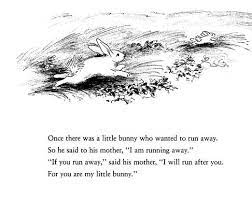No matter how thin you make the pancakes, they always have two sides. With the possible exception of family game night–always fun–pretty much every other parent-child interaction is double edged. What about encouragement? Could there be a dark side to being a supportive parent? Consider the following seemingly uplifting statement from a father trying to be helpful: “You’re going to get a 1300 on your next SAT, I just know you will. Guaranteed. In the books. No worries. I know you can do it.”
Believing in your child is nice. Better than the alternative—“you’re ugly and your mother dresses you funny”—surely. Nothing wrong with a little constructive thinking and positive regard. The negative of course is that in reality there is no guarantee that the child’s score will indeed improve. Stuff happens. If the previous testing were 1290 rather than 890, the optimistic prediction is less onerous. 1290s frequently become 1300s on subsequent testing whereas an 890 morphing into a 1290 is as rare as a yacht-owning shepherd. Whatever the previous score, “I’m one hundred percent certain you’ll get a 1300” puts crushing pressure on the student; there’s no way for them to win. If the new score is commiserate with the parent‘s prediction, that’s sort of a draw. If Junior’s score does not improve, well, that’s just terrible. Even a strong score of 1290 could lead to prevarication and recrimination. It’s only a 1290. There’s no way to exceed expectations.
There’s no way for the kid to be who they are. There’s no path forward for them to accepted as an 890.
Image a child hearing “I only love you when you get on base” and you get the idea of how unhelpful “I knew you could do it” can be. “You got a 96? Don’t they give 100s in that school?” doesn’t likely leave the student feeling hopeful. If a 96 isn’t good enough, then even 100 is just breaking even.
The more I listen to families over the past 40 years, the more convinced I am that a great deal of good parenting involves a preponderance of listening. Arguing frequently involves talking. Talking reminds me of trying to convince somebody of something. I’m quite satisfied with my beliefs or lack thereof, opinions about religion, politics, what to wear and read. Pollsters are always looking for undecided voters to interview. I’m glad I don’t have to make my living predicting election results from talking to folks who don’t know who they’re going to vote for because I have never talked to anyone who hadn’t made up their mind forever ago. Similarly, the likelihood that your child woke up yesterday morning wondering what you thought about academic achievement is zero. You know who you’re going to vote for? Your child knows what your expectations are. Fulfilling them is a horse of another exam.
Reassurance is different from pontificating. Support and encouragement need not include prognostications. Indeed, as Yogi Berra said, “it’s hard to make predictions, especially about the future.” Offering your unconditional positive regard whatever the outcome results in better parent-child connections as well as better outcomes..
How many books can you think of that have remained in print for 82 years. There’s a reason Margaret Wise Brown Runaway Bunny has sold 12 million copies since first being published in 1942. (Brown’s Goodnight Moon with 48 million copies did even better.) The theme—a mother will always love, support, and accept her child’s growing independence is universal–or should be.
Reread the book. It’s free, should be required of all parents, and is a total of 404 words. Here are a few of them:
“If you are a gardener and find me” said the little bunny, “I will be a bird and fly away from you.”
“If you become a bird and fly away from me” said his mother, “I will be the tree that you come home to.”
Note that nowhere does the author suggest that the mother’s love is contingent on performance on norm referenced tests, proficiency in athletics, or marrying someone of whom she approves.
The book begins:
Once there was a little bunny who wanted to run away.
So he said to his mother, “I am running away.”
“If you run away,” said his mother, “I will run after you
For you are my little bunny.”
Updated, it might read:
All the time there are adolescents who want to be who they are.
So they say to their parents, “I am testing your love and acceptance.”
“If you express yourself with imperfections,” say their parents, “I will still love you for you,
For you are my child.”







